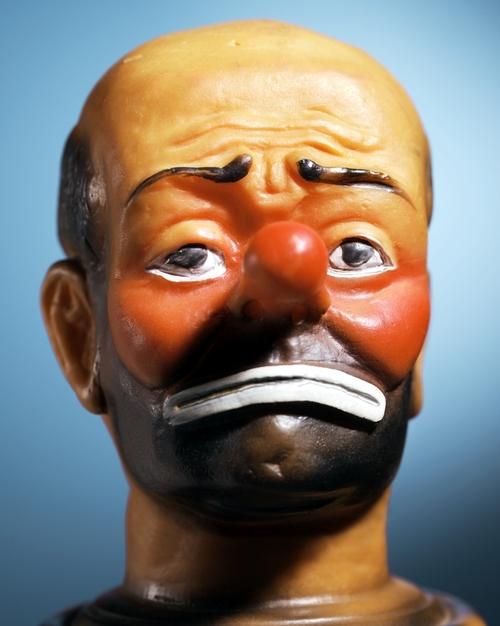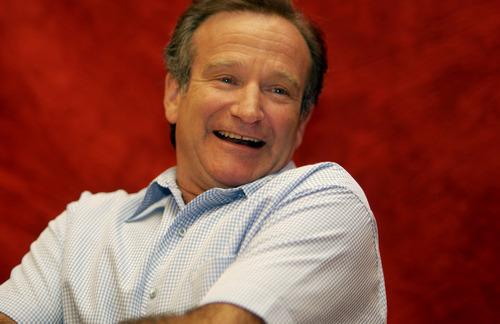
Is the funniest guy in the room also the most depressed? (Getty Images)
When
it comes to your health, a good sense of humor may be a liability: The
funniest comedians face a significantly higher risk of premature death
than their more serious counterparts, according to a new study in the
International Journal of Cardiology.
After the
recent death of Robin Williams,
the study authors wondered: Are comedians really more likely to die
before their time — or is it purely coincidence? “Anecdotally, an early
death appears to be a common phenomenon among comedians,” the
researchers write, citing another recent example in the
death of British comedian Rik Mayall this summer at age 56.
To
test their hypothesis, the scientists selected a group of 53 male
British comedians born between 1900 and 1954, rated their hilarity on a
scale of 1 to 10, and examined their death rates.
Their
findings seemed to confirm their suspicions that humor isn’t always
healthy: Among the 23 comedians judged to be “very funny,” 78 percent
were deceased, versus just 40 percent of the rest of the group. The
funniest guys died at an average age of 63 — the same age at which Robin
Williams took his own life — while the less-hilarious comedians died at
an average age of 72. The final analysis revealed that the most
humorous men faced a three times higher risk of premature death.
“There
is no easy explanation or mechanism for what we’ve observed,” study
author Simon Stewart, a professor of health sciences at Australian
Catholic University, tells Yahoo Health in an email. Since the study
examined a group of famous people, rather than a random sample, it was
impossible to account for personality traits or health problems in the
analysis, leaving the researchers only to speculate why the most
hilarious comedians seem doomed to an early death.
"Do
I perform sometimes in a manic style? Yes. Am I manic all the time? No.
Do I get sad? Oh yeah. Does it hit me hard? Oh yeah." - Robin Williams
on NPR in 2006 (Vera Anderson/Getty Images)
David Granirer, a registered counselor and founder of
Stand Up for Mental Health,
suggests that the lifestyle of stand-up comedians may play a role.
“There are a lot of really good comics out there who can barely make a
living and basically live in poverty,” he tells Yahoo Health. “Even
people who have done HBO specials are really grateful to get a $300 gig.
It’s a tough business — and that part of it is really depressing.”
In
other words, the challenges of the industry may predispose comedians to
stress and depression — a notion with which Ildiko Tabori, PhD, the
resident psychologist at Hollywood’s
Laugh Factory,
agrees. “They do their shows, then go back to an empty hotel room,” she
says. “They’re away from family and friends, their support network. And
they don’t work 9 to 5—they work 9 p.m. to 3 a.m. We know that
depression tends to be higher late at night and in the early morning
hours.”
Another
factor: Comedians often have poor work-life balance, since their
“office” is a social setting, like a bar or comedy club. “Comedians
don’t seem to recognize that they need downtime,” Tabori says. “They
think since they’re out every night, that is downtime — that they’re
having fun. But when you’re out at a comedy club every single night,
whether you’re performing or not, you’re still working.”
Add
to that the lifestyle choices that often come with hanging out in
bars—smoking, drugs, alcohol, unhealthy food — and it makes sense that a
career in comedy could take its toll on a person’s body, says Granirer.
What
the lifestyle may not be able to explain: the difference in the odds of
early death among the funniest guys and their less hilarious sidekicks.
This is where internal factors — rather than the external stuff, like
working hours and alcohol — may come into play.
In
fact, the very things that contribute to comedic ability may also place
people at risk of an untimely death. In the study, “there were a range
of deaths that could be traced back to mental health issues, such as
depression and mania,” Stewart says.
Previous
research suggests that comedians do, in fact, have personality factors
that may predispose them to mental health problems: In a 2014
British Journal of Psychiatry
study, researchers found that comedians are more prone to “introverted
anhedonia” (a reduced ability to feel social and physical pleasure) and
“extroverted impulsiveness” (a tendency toward impulsive, antisocial
behavior). This is an unusual blend of traits, similar to that of
bipolar disorder, the scientists say.
For
many comedians, “comedy may well be a therapy or release from their
inner demons,” says Stewart. “Perhaps the inspiration for their comedy
requires a more sensitive and often observant thought process and
personality that leaves them vulnerable to mental health issues.” As
comedian Jim Norton wrote after Robin Williams’ death, “The funniest
people I know seem to be the ones surrounded by darkness. And that’s
probably why they’re the funniest. The deeper the pit, the more humor
you need to dig yourself out of it.”
Though Tabori says her clients at the Laugh Factory come to her with problems similar to those of folks who aren’t funny
for a living — basic things like family, career, and relationship
concerns — she does say that humor can be a defense mechanism, a way to
mask emotional pain.
So
does this translate to real-world funny guys — the people who aren’t
paid to make you laugh, but do? “It is possible that the loudest and
funniest person at your Christmas party is not like that in private,”
says Stewart, “and is perhaps overcompensating for a lack of self-worth
or feelings of depression.” However, he notes, humor can also be healing
— it’s not necessarily a recipe for mental health trouble. “I can only
reflect on my father, who was universally loved for being one of the
funniest men anyone had met in social situations, but was quiet and
reflective at home,” Stewart says. “He died an untimely death at the age
of 49.”


No comments:
Post a Comment